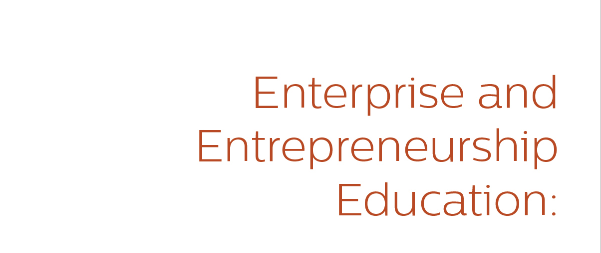
When universities foster a culture of enterprise and entrepreneurship, it equips students with the skills for a rewarding, self-determined professional life.
It also has significant benefits for the institution itself, says new guidance from the UK’s independent quality body QAA, publishing on 18 January. The guidance will also be available in Mandarin, following widespread use of the previous version.
QAA Chief Executive Douglas Blackstock says: ‘Since we published our original guide to enterprise and entrepreneurship education in 2012, there have been substantial developments in UK and international policy and practice.
‘Alongside providers’ adoption of new types of learning and new metrics for success are recent policy drives to apply entrepreneurial approaches to STEM subjects and the government’s new Industrial Strategy. This updated guide responds to these changes.’
The revised guidance, led by Professor Andrew Penaluna of the International Institute for Creative Entrepreneurship, captures the latest thinking on how to embed enterprise and entrepreneurship in higher education.
‘Educators are often tasked with preparing students for jobs that don’t yet exist, using technologies that have not yet been invented, and spotting and solving problems that we have yet to define clearly,’ says Professor Penaluna.
‘For enterprise and entrepreneurship to be meaningful and effective requires new approaches to teaching and assessment within a whole university culture.
‘The best opportunities for students occur when universities create a central environment that supports collaborative working across different areas.’
While the last five years have seen significant progress in enterprise and entrepreneurship education, Professor Penaluna believes universities can do a lot more to prepare graduates who want to run their own businesses or hit the ground running as graduate employees.
‘We need to allow students to learn in a way that enables them to identify and solve real problems, perhaps starting a business as an integral part of their programme or responding to challenges set by a local enterprise,’ he says.
‘And, allow them to fail, especially when learning is the result. Being able to experience failure in order to find new ways forward is a valuable life lesson that increases resilience, helps flexible thought development and brings innovative new ideas into play.’
EEUK believes that this second version of the QAA Enterprise and Entrepreneurship Education Guidance will be the keystone document across the sector.
In 2012 it was completely groundbreaking for the QAA and sector specialists, led by Professor Andy Penaluna (EEUK Fellow) to create a new type of Guidance document that would work with, and span across, all QAA Subject Benchmarks. Since then, it has become the only ‘go-to’ guidance, not only in HE, but also in FE and around the world.
This new edition, which has been influenced by both EEUK members and IEEC delegates creates a highly accessible working document that will drive further change across the sector.
EEUK’s Head of Policy, Alison Price said, ‘This 2018 version is clearer to read, more strategic as well as more practical, providing the national definitions for enterprise and entrepreneurship, as well as advice on delivery (at both student and institutional level). This document will become the guiding light within the sector.’
The new guidance can be read and downloaded here.
